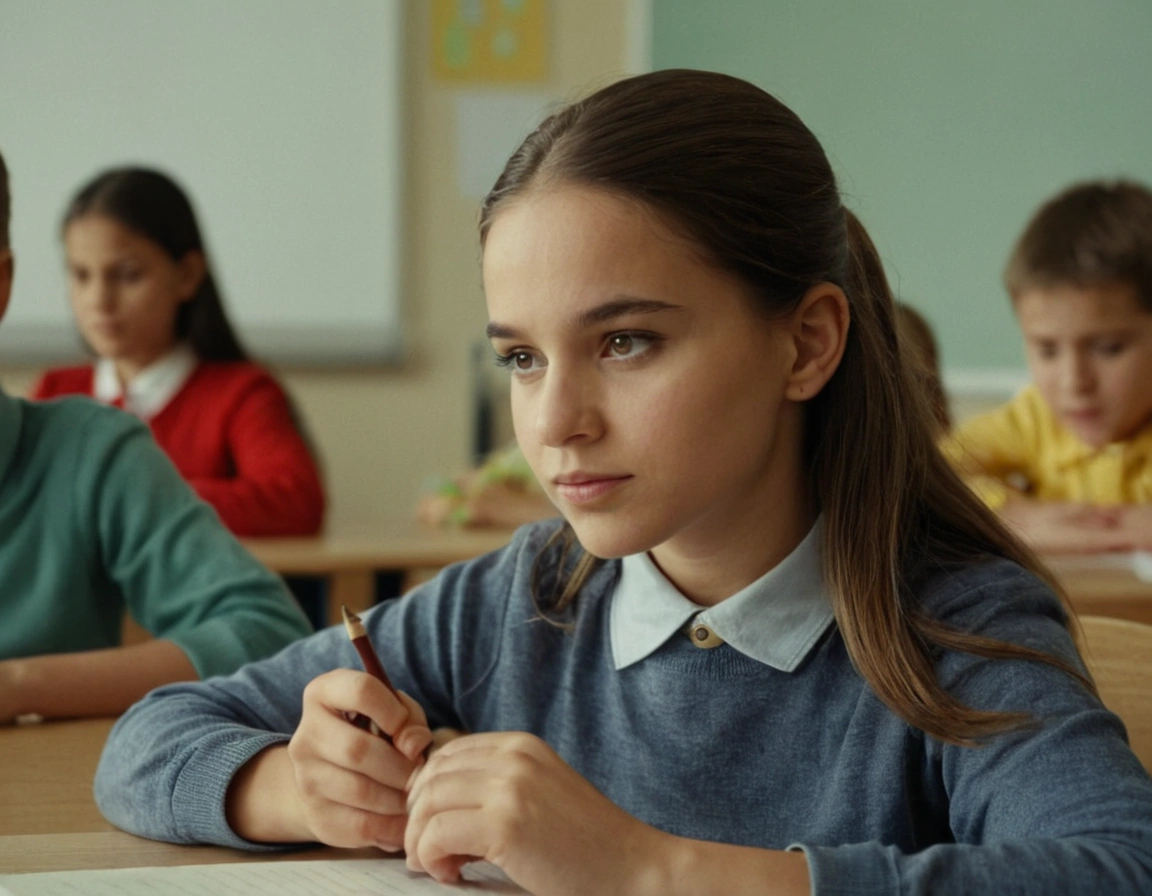Welcome! Special education training is becoming a core component of private school education, and for good reason. As more private schools open their doors to students with diverse learning needs, it’s crucial that teachers have the skills to create inclusive, supportive classrooms where every student can thrive. Special education training equips teachers with strategies and tools to address a wide range of learning abilities, ensuring that all students receive the quality education they deserve.
In this article, we’ll explore why special education training is so important for private school teachers. From improving student engagement to fostering a positive learning environment, specialized training benefits both students and educators. If you’re a parent, teacher, or administrator, understanding the importance of special education training can help you make informed decisions about the kind of education that best supports diverse learners.
The Importance of Special Education Training for Private School Teachers
1. Building a Foundation of Inclusivity and Understanding
Special education training helps private school teachers understand the diverse needs of students who may have learning differences, such as ADHD, dyslexia, autism spectrum disorder (ASD), or sensory processing challenges. This understanding is essential for creating an inclusive classroom environment.
By recognizing these differences, teachers can cultivate an atmosphere where students feel valued and supported. Special education training introduces teachers to concepts like neurodiversity and inclusive learning, helping them appreciate the strengths and challenges of each student. An inclusive foundation fosters a sense of belonging and encourages all students to actively engage in their learning journey.
2. Equipping Teachers with Effective Teaching Strategies
Incorporating special education strategies enables teachers to deliver lessons in ways that accommodate different learning styles. For example, some students may benefit from visual aids, while others might need hands-on activities to grasp new concepts. Special education training introduces teachers to various teaching strategies, such as differentiated instruction, which allows them to adjust lesson plans to meet each student’s unique needs.
For instance, a student with dyslexia may need text-to-speech software, while a student with ADHD might benefit from structured lesson formats and clear instructions. These strategies ensure that every student has an equal opportunity to succeed.
Key Benefits of Special Education Training in Private Schools
| Benefit | Impact on Classroom and Student Success |
|---|---|
| Fosters Inclusivity | Creates a supportive and accepting environment for all students |
| Enhances Teaching Strategies | Empowers teachers to adapt lessons for diverse learning needs |
| Reduces Behavioral Challenges | Helps teachers understand and manage behavioral issues effectively |
| Builds Confidence in Teachers | Provides teachers with tools to feel prepared and capable |
| Increases Student Engagement | Keeps all students actively involved in the learning process |
3. Reducing Behavioral Challenges
Behavioral issues can sometimes arise in classrooms when students feel frustrated or misunderstood. Special education training equips teachers with tools for understanding the underlying causes of these behaviors and for implementing positive behavior support strategies.
For example, some students may act out due to sensory sensitivities, while others may struggle with focus. Training helps teachers identify triggers and implement interventions that prevent escalation. Techniques such as structured routines, calming strategies, and positive reinforcement are invaluable for reducing disruptions and creating a peaceful classroom environment.
4. Building Teacher Confidence and Preparedness
Teachers who receive special education training feel more confident and prepared to handle the unique challenges they may encounter. This sense of preparedness allows them to approach their work with enthusiasm and a problem-solving mindset. Confidence not only enhances their teaching but also positively affects students, who benefit from being taught by educators who feel capable and committed.
Additionally, teachers trained in special education feel empowered to collaborate with parents, specialists, and administrators to create individualized support plans. This collaboration ensures a well-rounded approach to each student’s learning.
5. Enhancing Student Engagement and Participation
Engagement is essential for effective learning, and special education training equips teachers with strategies to keep all students actively involved. By using tools like interactive activities, visual supports, and hands-on learning opportunities, teachers can captivate students’ attention.
For students who may struggle with traditional learning methods, these approaches make lessons more accessible and enjoyable. Enhanced engagement leads to better retention of information and a more positive attitude toward learning, making school a place where students look forward to attending each day.
6. Personalizing Learning for Diverse Needs
One of the core principles of special education training is the recognition that each student learns in their own way. Private school teachers trained in special education are equipped to personalize instruction to suit the needs of individual students. Personalization might involve breaking down tasks, offering alternative forms of assessment, or allowing flexible timelines for assignments.
This approach is especially valuable for private schools, which often emphasize small class sizes and individualized attention. By personalizing learning, teachers ensure that students receive the support they need to succeed, regardless of their starting point.
Solutions for Addressing Special Education Needs in Private Schools
| Challenge | Solution |
|---|---|
| Lack of Special Education Knowledge | Provide comprehensive training programs for teachers |
| Managing Classroom Behavior | Use positive behavior strategies and personalized interventions |
| Difficulty Adapting Lessons | Employ differentiated instruction and alternative learning formats |
| Supporting Diverse Needs Simultaneously | Implement small-group instruction or partner with support staff |
| Fostering Collaboration with Families | Establish regular parent-teacher meetings and open communication channels |
7. Improving Collaboration with Families and Specialists
Special education training emphasizes the importance of working closely with families and specialists to support students’ unique needs. Effective collaboration between teachers, parents, and special education experts leads to better educational outcomes for students.
Teachers trained in special education know how to communicate effectively with families, discuss progress, and address concerns. By partnering with specialists, they can implement strategies that are consistent and effective both at school and at home, creating a cohesive support system for the student.
8. Promoting Emotional and Social Development
Academic success is closely linked to emotional and social well-being. Special education training helps teachers support students not only academically but also in their emotional and social development. Teachers learn how to foster skills like emotional regulation, social interaction, and conflict resolution.
For example, a student with autism may need guidance on how to navigate social situations, while a student with ADHD might benefit from strategies for managing frustration. By addressing these aspects, teachers create a supportive environment that values students’ overall development.
9. Increasing Student Retention and Satisfaction
When students feel understood, supported, and valued, they are more likely to stay engaged and motivated. Private schools with teachers trained in special education often see higher student retention rates, as students with diverse needs are more likely to thrive in an environment where their learning preferences are recognized.
In addition, parents of students with learning differences are more satisfied when their children receive appropriate support, leading to a positive reputation for the school. This, in turn, attracts more families who value inclusive education.
10. Fostering a Positive School Environment
Ultimately, special education training contributes to a positive school culture where diversity is celebrated, and every student feels accepted. Teachers who understand and appreciate the value of inclusivity play a vital role in shaping a school environment that fosters respect, empathy, and kindness.
When private schools prioritize special education training, they make a powerful statement about their commitment to all students’ success. This approach creates a ripple effect, inspiring students to be more compassionate and understanding toward one another, which benefits the entire school community.
Conclusion
Special education training is an essential component of effective private school teaching. By fostering inclusivity, equipping teachers with valuable strategies, and promoting personalized learning, this training ensures that all students have the opportunity to reach their potential. When private school teachers receive specialized training, they create classrooms that accommodate diverse learning needs, encourage positive behavior, and nurture emotional and social development.
With skilled teachers who understand and address the challenges of each student, private schools can provide a learning environment that truly supports success. As more private schools embrace special education training, they empower both teachers and students, paving the way for a more inclusive, compassionate, and effective educational experience.




